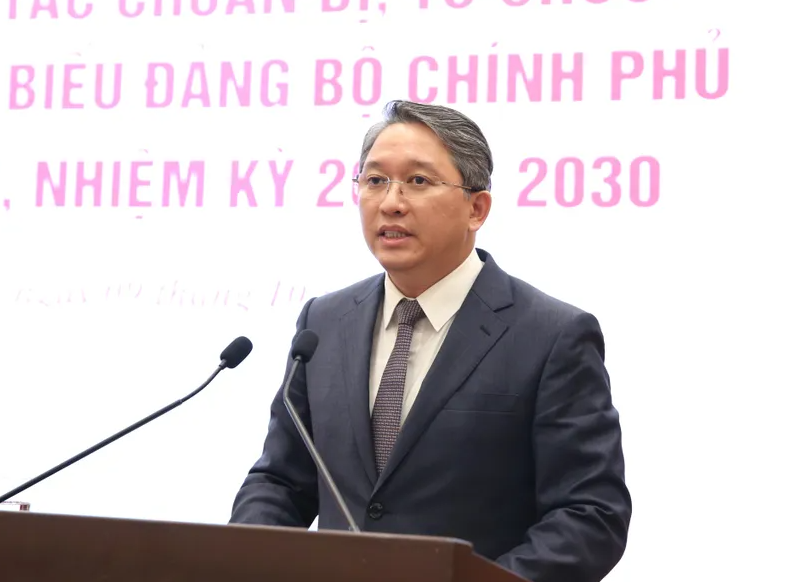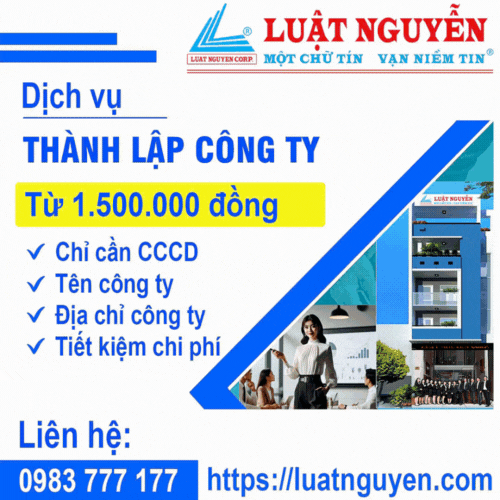Minister Nguyễn Hải Ninh Highlights ‘Special Mechanisms’ in Lawmaking
Minister Ninh stated that perfecting institutions remains one of the three strategic breakthroughs identified by the 13th National Party Congress. Recently, the Politburo issued Resolution No. 66-NQ/TW, underscoring that legal institutional reform must serve as a core breakthrough to remove bottlenecks, strengthen competitiveness, and provide a solid legal foundation for socio-economic development.
He noted that during the current term, the Government Party Committee has advised the Politburo to issue several key documents, including Resolution No. 27-NQ/TW on building and perfecting a socialist rule-of-law state and Decision No. 178-QĐ/TW—the first-ever Politburo decision on controlling power, preventing corruption, and ensuring integrity in lawmaking.

Since the start of the term, the Government has held 41 specialized sessions on legal development, submitted 121 laws and resolutions to the National Assembly, and plans to present about 55 more at the upcoming 10th session. In total, 2025 alone is expected to see the introduction of around 102 legislative documents—the highest annual number to date.
Minister Ninh affirmed that recent economic and social progress would not have been possible without advances in legal and institutional reform. The Government and Prime Minister have also issued 988 legal documents so far, including 813 decrees, 11 resolutions, and 164 decisions—another record for a single term.
Innovative and “Special” Mechanisms in Lawmaking
Minister Ninh highlighted several significant innovations. For the first time, Vietnam’s legal framework includes a mechanism for official legal interpretation and application guidance, a move widely welcomed by businesses, local governments, and citizens. Transparency and public access have also been enhanced through the launch of the National Legal Portal—an online platform enabling two-way interaction between state authorities, businesses, and the public.
He emphasized that instead of exchanging paper documents, ministries can now publicly discuss and resolve legal issues digitally. This process, he said, has been highly appreciated by legal professionals and enterprises.
Another key mechanism is the appointment of the Prime Minister as head of the Steering Committee for reviewing and removing obstacles in lawmaking, which has helped promptly address multiple legal bottlenecks.
Since the beginning of the term, over 2,000 recommendations and concerns from businesses, local authorities, and citizens have been reviewed. Of these, 1,300 issues were clarified publicly on the Legal Portal, and 787 were identified as requiring policy adjustment, with urgent matters to be resolved within 2025.
Law as a Tool for Unlocking Resources
Permanent Deputy Prime Minister Nguyễn Hòa Bình stated that this term has seen major shifts in thinking and policy direction—especially recognizing law not only as an instrument of governance but also as a tool for development.
He emphasized that in the past, legal frameworks tended to focus more on control than facilitation. Now, the government aims to enhance the “enabling” function of law—decentralizing authority, streamlining administration, removing procedural bottlenecks, and activating untapped resources for growth.
“This marks a new mindset in legislative development,” he said, stressing that the law must both regulate and empower to support Vietnam’s modernization goals.
Ý kiến bạn đọc
Những tin mới hơn
Những tin cũ hơn
Nguyễn Thị Kim Hường: Người thầm lặng kiến tạo giá trị, vững bước cùng Luật Nguyễn
Trong bất kỳ tổ chức nào, bên cạnh những người trực tiếp "ra trận" tạo nên doanh thu, còn có những "kiến trúc sư thầm lặng" xây dựng nên nền móng vững chắc. Tại Luật Nguyễn, người ta thường nhắc đến những luật sư dày dạn kinh nghiệm, nhưng ít ai biết về Nguyễn Thị Kim Hường – một trong những...
-
 Gold Transactions Worth Over VND 20 Million Per Day Must Be Cashless
Gold Transactions Worth Over VND 20 Million Per Day Must Be Cashless
-
 Giao dịch vàng từ 20 triệu đồng/ngày bắt buộc thanh toán không dùng tiền mặt
Giao dịch vàng từ 20 triệu đồng/ngày bắt buộc thanh toán không dùng tiền mặt
-
 Government Orders Strict Action Against Cash Payments Used for Tax Evasion
Government Orders Strict Action Against Cash Payments Used for Tax Evasion
-
 Chính phủ có công điện yêu cầu xử lý nghiêm hành vi thanh toán tiền mặt để trốn thuế
Chính phủ có công điện yêu cầu xử lý nghiêm hành vi thanh toán tiền mặt để trốn thuế
-
 Nhiều quy định mới về lao động nước ngoài tại Việt Nam
Nhiều quy định mới về lao động nước ngoài tại Việt Nam
- Đang truy cập99
- Hôm nay18,761
- Tháng hiện tại212,567
- Tổng lượt truy cập1,615,356
-
 Cập nhật địa chỉ trụ sở Công an cấp xã tại TPHCM sau sáp nhập
Cập nhật địa chỉ trụ sở Công an cấp xã tại TPHCM sau sáp nhập
-
 Địa chỉ 19 Tòa án nhân dân (TAND) khu vực TP.HCM sau sáp nhập
Địa chỉ 19 Tòa án nhân dân (TAND) khu vực TP.HCM sau sáp nhập
-
 Từ ngày 1.7: Cách ghi địa chỉ trên hóa đơn điện tử thay đổi
Từ ngày 1.7: Cách ghi địa chỉ trên hóa đơn điện tử thay đổi
-
 Thông tư 40/2021 :Quy định về nghĩa vụ thuế đối với hộ kinh doanh
Thông tư 40/2021 :Quy định về nghĩa vụ thuế đối với hộ kinh doanh
-
 Hóa đơn GTGT xuất cho khách cá nhân có bắt buộc ghi CCCD?
Hóa đơn GTGT xuất cho khách cá nhân có bắt buộc ghi CCCD?








